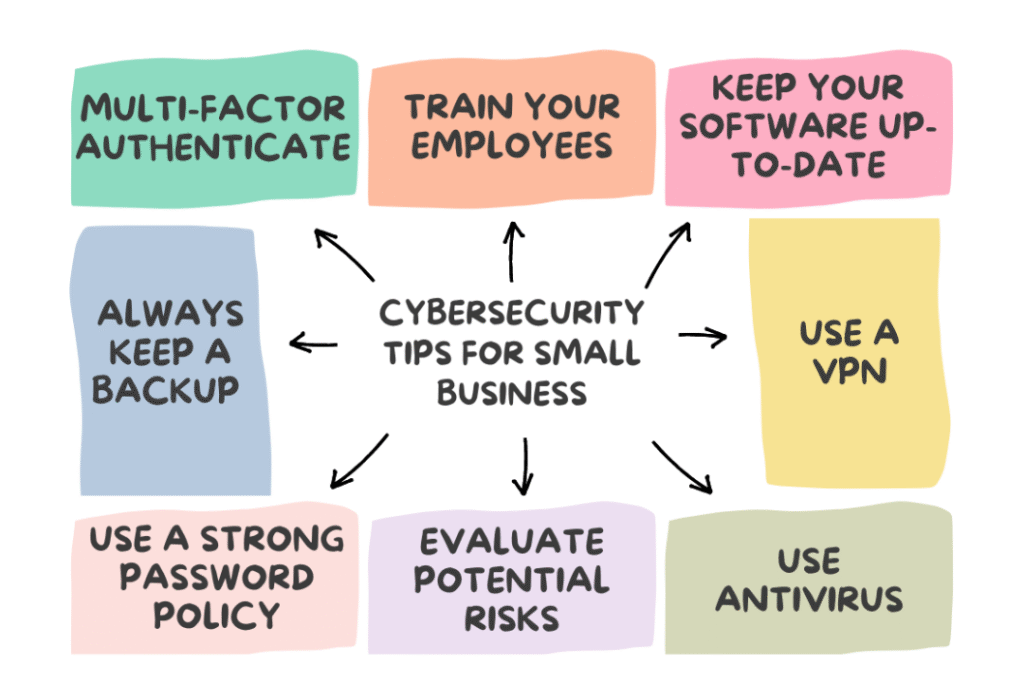In today digital-first world, no business is too small to be a target. While large corporations often make the headlines when a breach occurs, small businesses are just as vulnerable sometimes even more so. Cybercriminals know that smaller companies often lack the advanced defenses of larger organizations, making them easy targets. That’s why protecting your business is no longer optional it’s essential for survival and growth.
The Real Risk of Cyber Threats
Many small business owners believe hackers won’t bother with them because of their size. Unfortunately, the opposite is true. According to recent studies, nearly half of all cyberattacks are aimed at small and mid-sized enterprises. Why? Because attackers know these companies may not have strong firewalls, dedicated IT teams, or advanced security systems.
At the heart of the issue is why cybersecurity matters for small businesses to prevent data breaches and safeguard customer trust. Losing customer data, even in a minor incident, can damage reputation and lead to financial penalties. For many businesses, the cost of recovery can be overwhelming.
Protecting Customer Trust
Trust is the currency of business. When customers hand over their personal or financial details, they expect that information to remain safe. A single breach can cause customers to lose faith and turn to competitors. Building strong security protocols not only protects sensitive data but also reassures clients that their information is in safe hands.
Investing in cybersecurity is therefore not just about compliance it’s about long-term brand reputation.

Common Cybersecurity Threats
Understanding potential risks is the first step toward protection. Some of the most common threats small businesses face include:
- Phishing Emails: Fake emails tricking employees into revealing passwords or sensitive information.
- Ransomware Attacks: Malicious software that locks business data until a ransom is paid.
- Weak Passwords: Easily guessed or reused passwords that open the door to intruders.
- Unsecured Wi-Fi Networks: Public or poorly protected networks that give hackers easy access.
Recognizing these threats makes it easier to prepare effective defenses.
Affordable Security Practices
Many business owners assume cybersecurity requires a massive budget. The truth is, small steps can make a big difference. For example:
- Implementing multi-factor authentication (MFA) for all accounts.
- Regularly updating software to patch vulnerabilities.
- Training employees to spot phishing scams.
- Backing up data regularly to secure cloud storage.
Even businesses with limited budgets can take these basic actions to protect themselves.
The GEO Factor in Cybersecurity
Geographic considerations also matter. For instance, businesses in regions with strict data protection regulations, like the European Union (GDPR), face higher compliance standards. Similarly, U.S.-based companies may need to follow state-level rules such as CCPA in California. Understanding the local legal framework ensures compliance and prevents costly penalties.
Moreover, cyberattacks can vary geographically. A company operating internationally may face different risks than a local store. Tailoring defenses to your geographic and industry-specific risks is a smart strategy.
Future-Proofing Your Business
Technology keeps evolving, and so do cyber threats. From AI-driven attacks to advanced ransomware, the landscape is becoming more complex. Small businesses that embrace proactive security measures like monitoring systems, cybersecurity insurance, and periodic audits will be better prepared for future risks.
Final Through
Cybersecurity for small businesses isn’t just about avoiding threats it’s about building resilience, protecting trust, and ensuring long-term success. By taking smart, affordable steps today, business owners can create a safer environment for themselves, their employees, and their customers.






